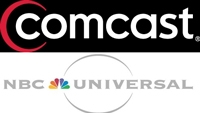FCC moves to protect online video distributors as part of Comcast-NBCU merger order

The FCC Memorandum Opinion and Order approving the merger of Comcast and NBCU released to the public Jan. 20 puts in place several safeguards aimed at protecting consumers from discriminatory broadband Internet access policies and online video distributors from anticompetitive practices on the part of the new media colossus.
In the view of the FCC, these steps are needed because the merged entity “will have the incentive and ability to discriminate against, thwart the development of or otherwise take anticompetitive actions against (online video distributors),” the document said. Simply put, Comcast has a reason to stifle online video distributor development and retard competition from those that succeed.
To protect online video distributors from actions that thwart competition, the order requires Comcast-NBCU to offer its video programs to any Internet video distributor on the same conditions available to tradition multichannel video programming distributors, such as cable and satellite TV services.
However, that protection places a demand upon online video distributors as well. To qualify for the protection, online video distributors must provide their customers with Comcast-NBCU programming in the same way multichannel video programming distributors do, which is streamed in a linear fashion as well as made available as VOD content.
In the commission’s view, by treating online video distributors in a way that’s similar to multichannel video programming distributors, Internet TV providers will be protected from any discriminatory action on the part of Comcast to prevent online video distributors from competing directly for subscribers.
For online video distributors using something other than the online equivalent of multichannel video programming distributors’ linear and VOD service, the order provides a different sort of protection from anticompetitive practices. For these online video distributors, Comcast is required to offer its programming on terms economically comparable to those of its nonvertically integrated peers, “which lack Comcast-NBCU’s incentive to harm online providers,” the order said.
“This market-driven approach will ensure access to programming by (online video distributors) as the online services develop, without prejudging the direction that dynamic market will take,” the MO&O said.
Get the TV Tech Newsletter
The professional video industry's #1 source for news, trends and product and tech information. Sign up below.
The order calls for enforcement using “baseball-style arbitration,” which mirrors the commission’s program access procedures set up for multichannel video programming distributors, “with slight adjustments.” It also takes steps to keep Hulu viable. In the view of the commission, Comcast-NBCU won’t have the same incentives to develop Hulu as the premerger NBCU. Thus, the order requires Comcast-NBCU to forego influencing “the conduct or operation” of the popular video Web portal.
The order also addressed concerns raised by those fearing that the merger will give Comcast, as an Internet access service provider, a greater incentive to block, degrade access to or slow down access to websites from other content providers and online video distributors, or conversely speed up access to its own content.
The concern stems from what some of those filing comments with the commission regarding the merger characterize as “network management practices that have a discriminatory effect on selected content.” They also expressed concern over the use of technologies like deep packet inspection to discriminate between packets and the possibility of usage caps.
While the commission acknowledged that many of these concerns impact all ISPs, Comcast will have an increased incentive to discriminate against content from unaffiliated sources because of its increased access to programming content stemming from the merger. That additional content can be delivered via the Internet and used as a substitute for the content of other providers.
Following the merger, Comcast will control NBCU, which consists mostly of video programming assets, have a 32 percent stake in Hulu and own about a 5 percent market share of online video distribution sites.
“Few other (online video distributors) control such a high percentage of the content they distribute, and no others are vertically integrated with the nation’s largest residential broadband provider,” the order said.
As part of winning FCC approval for the deal, Comcast, General Electric, which owns NBCU, and NBCU, agreed that neither Comcast nor Comcast-NBCU will give priority to affiliated Internet content over unaffiliated content when provisioning Internet access services. Additionally, any caps, tiers, metering or other usage-based pricing must not treat affiliated traffic differently than unaffiliated network traffic.
Phil Kurz is a contributing editor to TV Tech. He has written about TV and video technology for more than 30 years and served as editor of three leading industry magazines. He earned a Bachelor of Journalism and a Master’s Degree in Journalism from the University of Missouri-Columbia School of Journalism.

